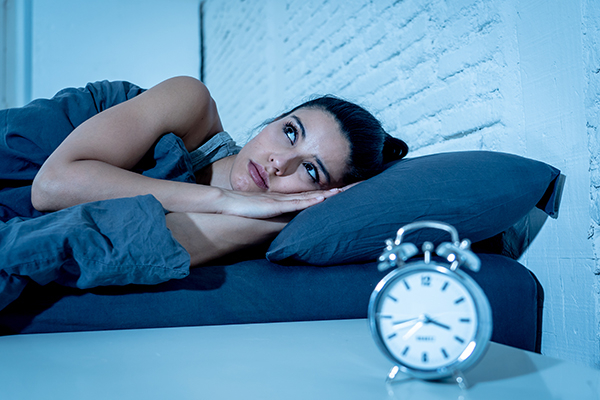Can’t Sleep? Likely, Neither Can Your Neighbors

Having trouble sleeping? Are you exhausted during the day?
You are not alone.
About 30 percent of adults in the Garden State report having problems sleeping, according to the findings of a recent poll conducted by Rutgers Center for State Health Policy that suggest a large number of people in the state suffer from chronic sleep problems.
Among the findings:
- Nearly a third of the seven million adults who live in the state report having had trouble sleeping at some point in the week before they were interviewed.
- 31 percent say they are dissatisfied with the quality of their sleep—including 16 percent (roughly 1 million people) who are “very” dissatisfied.
- 36 percent say they experience at least one of these problems: not having enough time to sleep, trouble falling or staying asleep, or sleeping with a snoring partner or too much other noise.
“Studies have made clear that sleep is vital to our health and well-being,” said Joel Cantor, director of Rutgers Center for State Health Policy. “People who routinely do not get enough sleep are at an increased risk for heart disease, obesity, diabetes, accidents and other health problems. Insufficient sleep can also lead to reduced productivity at work or school and a lower ability to fight off infections such as colds.”
The New Jersey Health and Well-Being Poll was conducted with a scientific sample of 860 New Jersey adults between Jan. 16 and Feb. 12 on sleep and other forces affecting respondents’ health and well-being. The poll, conducted with live respondents in English and Spanish via cell phone and landline telephone, has a sampling error of plus or minus 3.97 percentage points.
As many as 43 percent of respondents experienced a sleep-related problem in the month before being interviewed, with 30 percent reporting a problem in the last week. Strikingly, nearly one in four (22 percent) reported a sleep problem the night before they were interviewed, suggesting a very large number of state residents have a chronic sleep problem.
Some problems reported are:
- About one quarter (24 percent) of New Jerseyans say they have a “big problem” either falling asleep or waking up too early. And just over another quarter (27 percent) say this is a “small problem” for them, totaling up to about half of those adults living in the state bothered by one of these sleep problems.
- Just 16 percent say “not having enough time to sleep” is a big problem for them, and another 21 percent say it is a small problem, totaling to 37 percent.
- Statewide, just 9 percent report that their partner’s snoring or other noise is a big problem. However, 12 percent of those who are either married or report living with a partner say this is a big problem, and 34 percent of them say it is either a big or small problem for them. Women were more likely to report partner snoring or other noise as a big or small problem than men (35 percent compared to 20 percent).
- More of those who report their health as fair or poor said they had problems sleeping in the past month (52 percent) compared to those reporting excellent or very good health (37 percent) and this is even higher for those reporting fair or poor mental health (60 percent) compared to those reporting excellent or very good mental health (33 percent). These trends held across all the sleep questions in the poll.
“Our finding that sleep and health problems are connected is striking.” Cantor continued. “Health problems are likely to interfere with sleep, but poor sleep can also cause or worsen health problems.”
Other findings from the poll include:
- The share of the population reporting problems sleeping in the past month declines with age. For example, more young adults ages 18-29 reported problems sleeping in the past month (53 percent) compared to adults ages 65 and over (33 percent).
- Fewer black non-Hispanic adults reported sleeping problems in the past month (34 percent) than other racial-ethnic groups (about 44 percent). Asian non-Hispanic adults and Hispanic adults were more likely to report that not having enough time to sleep was a big or small problem (50 percent and 52 percent respectively) compared to adults overall (37 percent).
- More single/never married and divorced-separated adults reported problems sleeping in the past month (51 percent and 50 percent, respectively) compared to those who are married/living with a partner (39 percent) or widowed (35 percent).
- Adults with children living in the household were more likely to report not having enough time to sleep (46 percent) compared to adults living alone (26 percent).
- Those with more years of education were more likely to report sleeping problems in the past month (about 46 percent) compared to those with less than a high school education (35 percent).
- Non-U.S. citizens were more likely to report not having enough time to sleep (56 percent) compared to U.S. citizens (36 percent).
More information about the poll can be found in the Methodology Report. The Health and Well-Being Poll was designed and analyzed by researchers at the Rutgers Center for State Health Policy (www.cshp.rutgers.edu) and supported by the Robert Wood Johnson Foundation (www.rwjf.org).